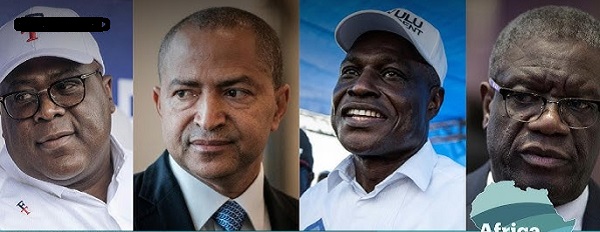Members of the Congolese diaspora community in Paris have gone to the polls to vote for the first time, in the presidential and legislative elections held Wednesday in the Democratic Republic of Congo (DRC).
In an unprecedented move since independence in 1960, the election will extend beyond the borders of the vast Central African state with nearly 100 million inhabitants, allowing voting from abroad—a right guaranteed by electoral law but never implemented.
Embassies in the five countries selected by the electoral commission for this “pilot” experience—France, Belgium, South Africa, the United States, and Canada—registered their nationals on the electoral lists earlier this year.
“It’s a very first time that I’m going to vote inside the country. I’m proud,” says Papie Tyty, a member of the Congolese community in Paris.
However, amid the joy, there are poignant expressions of concern and urgency. Gabrielle highlights the humanitarian crises and suffering in regions like North Kivu. She emphasizes the importance of the diaspora’s voice in advocating for positive change, making the act of voting not just a right but a moral responsibility.
In Château Rouge, while many people interviewed approve of the very principle of participating in the vote, most are not fooled about the usefulness of such a vote.
Marmut Zukke, a 30-year-old member of the diaspora, reflects on the perceived predictability of the elections. He questions the effectiveness and reliability of the electoral process, expressing scepticism about the security measures in place. Zukke suggests a prevailing belief that the outcomes are already predetermined, raising concerns about the fairness and transparency of the electoral system.
Nanou Nundelou echoes the sentiments of many, questioning the potential impact of the diaspora vote. He emphasizes the importance of organizational transparency and equitable distribution of voting resources for those living abroad.
The diaspora also makes a significant contribution to the Congolese economy remitting 1.7 billion dollars in 2022 according to the World Bank, helping families pay for education or healthcare in a country rich in minerals but where two-thirds of the population lives below the poverty line.

